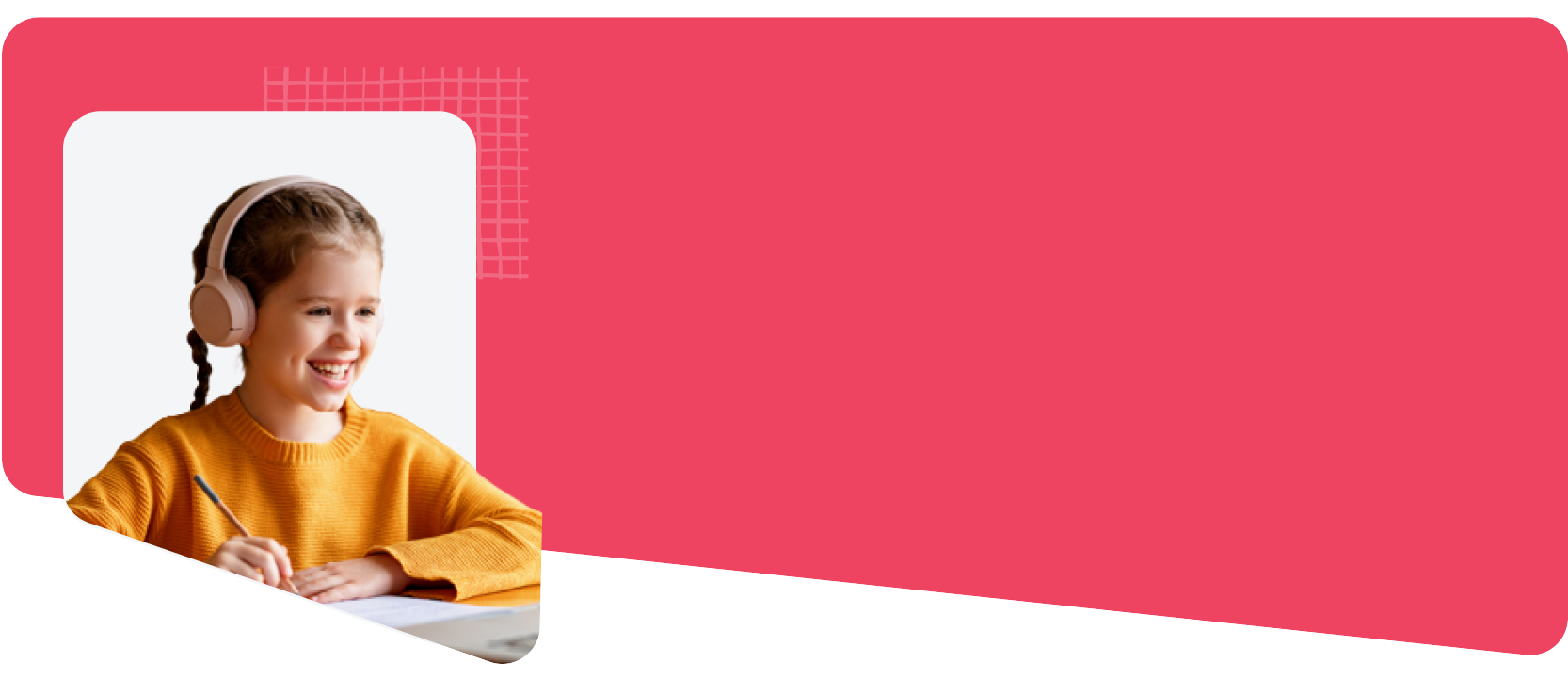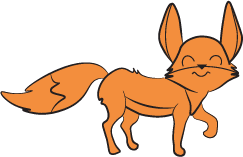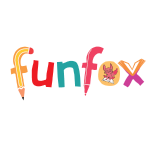When you think of school, what is the first thing that comes to your mind? Your child sitting on a desk with a book and learning Math or maybe English? Well, that’s what most of the parents think. However, school is much more than just studying on a desk. When your little one begins school, they take a step toward a new life. They meet new people, make friends, and gradually become a better version of themselves through various things they learn at school.
We understand that as parents it can be a daunting task to prepare your child for kindergarten as you would worry about hundreds of things before the day actually arrives. Don’t worry, at school, there’d be teachers to take care of your little human. And we’re here to help you prepare them for a smooth transition and nurture those kindergarten readiness skills in your little one with simple activities.
In this blog, let’s dive into the essential skills in language, reading, math, self-care, social and emotional development, fine motor skills, and gross motor skills, ensuring your child is equipped to thrive from day one. Let’s get going!
Why is Kindergarten Readiness Important?
Kindergarten is a critical transition in a child's early life, marking their first step from home to the classroom. Ensuring they're prepared isn't just about comfort; it's about setting the stage for long-term success.
Why Kindergarten Readiness Matters:
-
Academic Foundation: Ready children grasp new concepts quickly, boosting confidence and enthusiasm for learning.
-
Skill Building: Kindergarten introduces essential academic and social skills, such as literacy, numeracy, sharing, listening, and following directions. Lacking these can lead to struggles and disinterest.
-
Emotional Development: Prepared children handle the emotional challenges of a structured environment better, managing their emotions and interacting positively.
Kindergarten readiness is about more than knowing letters or numbers; it's about holistic preparation for a successful educational journey and social development. So, let’s get them ready for kindergarten with some basic skills beginning with language skills.
Language Skills
Developing strong language skills in early childhood is crucial, as it lays the foundation for effective communication and academic success. In kindergarten, children learn to express themselves clearly, understand instructions, and engage in meaningful conversations with peers and teachers. These skills not only support literacy development but also help build confidence and social connections, which are vital for their overall growth. Let’s look at the various aspects of these skills and how you can improve them.
-
Enjoy Listening to Stories
Make storytime enjoyable by using different voices, asking open-ended questions, and discussing characters. This enhances reading enjoyment, comprehension, and critical thinking.
-
Navigating a Book
Understanding the physical structure of a book is an essential skill. Show your child how to find the first page, and explain which way to flip the pages. This simple skill helps children grasp the concept of reading from left to right and following a sequence, which is critical for their future reading endeavors.
-
Recognizing Logos and Signs
Visual literacy significantly influences early reading skills. Encourage your child to recognize familiar logos and signs, such as stop signs, traffic lights, or logos of well-known restaurants. This skill teaches them to understand and interpret symbols, which is a precursor to recognizing and understanding written words.
-
Alphabet and Letter Recognition
Daily practice of the alphabet ensures letter recognition. Engage your child with alphabet songs, flashcards, and puzzles to make learning fun.
-
Writing Their Own Name
Encourage your child to write their name, which boosts letter recognition and fine motor skills. Start with tracing and move to independent writing to build confidence.
-
Recognizing Rhyming Words
Phonemic awareness is crucial for reading readiness. Engage your child in activities that highlight rhyming words, such as reading rhyming books or singing rhyming songs. Understanding rhymes helps children recognize patterns in words and enhances their ability to decode new words.
-
Connecting Letter Sounds to Letters
Begin teaching your child to connect letter sounds to their corresponding letters. Start with the first letter of their name and gradually introduce other letters. This skill is vital as it lays the groundwork for phonics, which is essential for reading and spelling.
-
Reading Frequently
Regular reading is one of the best ways to improve reading readiness. Make it a daily habit to read different types of books with varying genres and levels of complexity. The more varied the reading material, the broader the child's exposure to different words and contexts.
-
Interactive Reading
Make reading sessions interactive. Ask questions about the story, point to the words as you read them, and prompt your child to predict what will happen next. This interaction makes reading a dynamic activity and actively engages your child's mind.
-
Using Visual Aids
Visual aids, such as pictures and images, can significantly enhance comprehension and visual literacy. Use books with vivid illustrations and point out how the pictures relate to the text. This helps children understand and remember the story better.
-
Establishing a Reading Routine
Create a consistent reading routine. Whether it's reading before bedtime or after dinner, a regular schedule makes reading a habitual and pleasurable part of your child's day.
-
Encouraging Self-Reading
Encourage your child to read on their own, even if just for a few minutes a day. This practice is vital for developing reading fluency and building confidence. Over time, children who read independently are more likely to develop a resilient interest in reading.
Feeling overwhelmed? Don’t worry, we’ve got your back. To further support your child’s reading readiness, join FunFox’s Readers Club today. With a small class size, we make sure that every child gets individualized attention and has fun while learning.
After reading, let’s move ahead toward some fun numbers and look at math skills closely.
Math Skills
Preparing your child for kindergarten involves more than just teaching them to count. Cultivating essential math skills will help lay a strong foundation for their future education. Let's delve into the specific skills your child should develop and some practical activities to enhance their learning experience.
-
Counting from 1 to 10
Start with counting from 1 to 10 without skipping numbers. Make it engaging by counting everyday items like cars or steps at home, building a strong numerical foundation.
-
Matching Numbers to Objects
Help your child understand one-to-one correspondence by matching numbers to small objects like blocks or toys, making abstract numbers tangible.
-
Recognizing Basic Shapes
Introduce basic shapes using everyday objects, encouraging your child to identify squares, circles, and triangles, which enhances both geometric understanding and observational skills.
-
Understanding Comparisons
Teach "more than" and "less than" by comparing sets of objects, helping your child develop a sense of quantity and comparison.
-
Arranging Objects in Order
Practice arranging objects by size, which strengthens logical thinking and problem-solving skills.
-
Color Recognition
Make color recognition fun with a scavenger hunt, helping your child identify colors in a playful way.
-
Incorporate Math into Daily Life
Use daily activities like cooking and shopping to practice counting, measuring, and comparing, turning everyday tasks into learning opportunities.
-
Use Visual Aids
Visual tools like number lines and shape puzzles can make abstract math concepts more concrete and easier to understand.
-
Make it Fun
Incorporate math games and activities that make learning enjoyable, helping your child develop a positive attitude toward math.
-
Practice Regularly
Consistency is key. So, set aside daily time for math practice to reinforce learning and build a strong foundation.
Integrate these activities into your daily routine to help your child develop essential math skills, making learning both effective and enjoyable.
Once you’re through with math skills, next up is self-care skills. Yes, you read it right. Children need to understand and take care of themselves as they move to school which has a more independent environment.
Self-Care Skills
Self-care skills are the foundation of a child's independence when starting kindergarten. These skills include managing daily routines like bathroom usage, dressing, and hygiene. Mastering these skills builds confidence and helps them navigate school life more smoothly.
-
Mastering Bathroom Independence
Teaching your child to use the bathroom independently is essential. This includes using the toilet, flushing, and washing hands. Regular practice at home helps reinforce these habits, emphasizing details like using soap and scrubbing for at least 20 seconds.
-
Self-Dressing Skills
Your child should be able to dress and undress themselves, including buttoning, zipping, buckling, and putting on jackets. Start with clothes off their body and gradually have them dress independently. Simple aids, like attaching a ribbon to small zippers, can help, and labeling clothes fosters responsibility.
-
Memorizing Personal Information
It's crucial that your child knows their first and last name and age. Creating a simple ID card with this information for them to carry can help. Regular practice ensures they can relay this information to teachers or in emergencies.
-
Establishing Healthy Hygiene Habits
Personal hygiene is important for preventing the spread of germs. Your child should wash hands before and after meals, and after using the bathroom, and use tissues properly. Routine practice at home can instill these healthy habits.
-
Table Manners
Good table manners include using utensils correctly, not talking with a full mouth, and cleaning up after themselves. Engage in regular mealtime routines to reinforce these behaviors, encouraging your child to help set the table and clean up afterward.
-
Additional Practical Skills
Mastering tasks like tying shoelaces, managing lunch containers, and opening snack packages boost your child's self-esteem and ease their school day. Social skills like waiting patiently, taking turns, and apologizing are also critical for their emotional growth.
Instilling these self-care skills takes patience and consistency. The benefits include kindergarten readiness as well as a strong sense of independence and responsibility.
Let’s move further with social and emotional skills in mind. Recognizing and managing their emotions can help children significantly in their school years and even the life ahead.
Social and Emotional Skills
When preparing your child for kindergarten, social and emotional skills are key to their readiness. These skills influence self-control, focus, and perseverance, helping them navigate new environments confidently.
-
Separation Confidence
Teach your child to separate from you without distress by gradually increasing time apart. A consistent goodbye routine, like a special wave or hug, reassures them you'll return.
-
Building Peer Interaction Skills
Encourage cooperative play and arrange playdates to help your child learn sharing, turn-taking, and empathy, essential for forming friendships and working with peers.
-
Enhancing Attention and Following Directions
Use games like 'Simon Says' and activities requiring sustained focus, like story listening, to build attention and the ability to follow directions.
-
Verbal Conflict Resolution
Teach your child to express feelings with 'I' statements and practice conflict resolution through role-playing, helping them handle disagreements verbally.
-
Cultivating Respect for Others
Model respectful behavior, teach polite language, and encourage your child to respect others' property and space while asserting their own rights kindly.
-
Fostering Empathy and Self-Awareness
Discuss scenarios that promote empathy, and help your child recognize and manage their emotions to develop compassion and self-awareness.
-
Developing Problem-Solving Strategies
Encourage critical thinking and problem-solving to build independence and self-confidence, preparing your child for kindergarten challenges.
To ease the transition, familiarize your child with school routines through role-playing, "playing school" at home, and reading books about school to set expectations and reduce anxiety.
Besides these skills, it’s also important to work on fine motor skills that will help them work on all of the above skills. Let’s look at fine motor skills more closely.
Fine Motor Skills
Fine motor skills are the small, precise movements of the hands and fingers that are crucial for a child's development, particularly as they prepare for kindergarten. Here are some practical activities that can help your child develop these essential skills.
-
Use a Pencil or Crayon with Control
Learning to use a pencil or crayon with control is a fundamental aspect of fine motor development. Encourage your child to correctly hold a pencil or crayon and practice drawing shapes and lines. Start with simple scribbles and gradually move to letter or shape tracing.
-
Use Scissors
Cutting with scissors helps kids develop hand-eye coordination and finger strength. Provide safety scissors and materials like paper or play dough. This activity makes learning to cut both safe and enjoyable.
-
Copy Basic Shapes
Copying shapes like circles, squares, and triangles helps children improve hand-eye coordination and fine motor control. Use tracing activities to practice these shapes, which also prepares them for writing letters.
-
Make Distinct Marks that Look Like Letters and Write Some Actual Letters
Encourage your child to make marks on paper, then gradually introduce them to actual letter forms. This enhances hand-eye coordination and finger dexterity, preparing them for school writing.
-
Put Together a Simple Puzzle
Puzzles require children to manipulate and fit pieces together, improving their fine motor skills. Start with simple puzzles and gradually increase the difficulty.
-
Build a Tower Using Blocks
Stacking and balancing blocks helps develop hand-eye coordination, spatial awareness, and creativity. Encourage your child to build different structures using blocks.
-
Attempt to Tie Shoelaces, Zippers, Buttons, and Buckles
Learning to use shoelaces, zippers, buttons, and buckles is important for independence. These tasks improve hand-eye coordination, finger dexterity, and self-reliance. Begin with simpler fasteners and progress to more complex ones.
All right, fine motor skills are not enough alone. So, let’s shift the focus to gross motor skills for now. Let’s look at some ways to enhance them.
Gross Motor Skills
Gross motor skills are fundamental for a child’s physical development and are essential for their readiness to tackle the active demands of kindergarten. Here are some key skills your child should master, along with practical activities to encourage their development:
-
Run
Running smoothly and navigating turns are key gross motor milestones. Encourage your child with activities like tag or yard races to build confidence and coordination.
-
Jump with Feet Together
Jumping with both feet together shows coordination and control. Practice through games like "Simon Says" or obstacle courses, turning it into a fun, educational activity.
-
Hop on One Foot
Hopping on one foot builds balance and leg strength. Engage in "Hopscotch" or games like "Red Light, Green Light" to make this skill fun and challenging.
-
Climb Stairs
Climbing stairs independently develops strength and balance. Allow your child to practice with minimal assistance, or use playground equipment to build confidence.
-
Bounce a Ball and Try to Catch It
Bouncing and catching a ball enhances hand-eye coordination. Play games like "Hot Potato" or casual catch, varying the ball size and speed for added challenge.
-
Throw and Kick a Ball
Throwing and kicking require coordination and control. Strengthen these skills with games like "Roll and Catch" or "Kick the Ball," using different balls and distances.
-
Ride a Tricycle
Riding a tricycle improves balance, coordination, and leg strength. Provide safe practice opportunities, introducing small challenges like gentle slopes or minor obstacles.
Incorporating these activities into daily playtime not only develops gross motor skills but also fosters a love for physical activity, ensuring your child is ready for the physical demands of kindergarten.
Wrapping It All Up
As you gear up for your child's big step into kindergarten, remember, that it's not just about learning ABCs and 123s. It's about equipping your little one with the skills they need to thrive—socially, emotionally, physically, and academically. From mastering bathroom independence to confidently running around the playground, each skill is a building block in their journey toward independence and success.
And hey, you don't have to do it all in one go. Make it fun, keep it light, and integrate these skills into everyday play. Whether it's a game of tag in the yard or practicing letters with crayons, these moments of learning can be both effective and enjoyable. So, take a deep breath, trust the process, and enjoy this exciting journey with your child.










